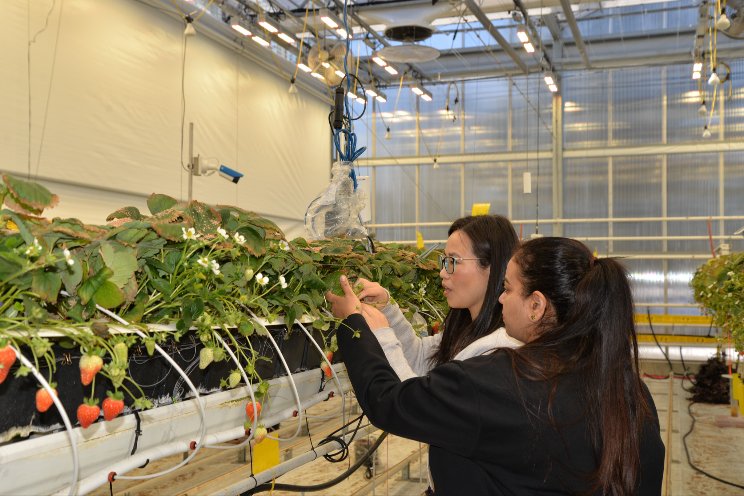Micronutrient fertilizers for improving plant
Added on 19 April 2020

Amid the health and food security threats of today's pandemic, it is clearly now more vital than ever to ensure that the world is properly fed. IFA's newly published backgrounder is a timely reminder of how important micronutrients are for achieving this.

Courtesy of Int'l Fertilizer Association
Micronutrients are crucial for human health
By helping to prevent chronic diseases and stunting, strengthen our immune and reproductive systems and enhance our physical and mental abilities, micronutrients are essential for human health. They can even help improve our resilience to viruses. Zinc, for example, is critical for supporting antiviral immunity.
Unfortunately, today more than 2 billion people still suffer from micronutrient malnutrition, sometimes referred to as Hidden Hunger, with zinc and iron deficiencies ranked 5th and 6th among the 10 most important factors for illnesses and diseases in low-income countries.
Children are the most susceptible to micronutrient deficiencies with 1 in 3 stunted worldwide. In 2017, the WHO estimated that over 6.3 million children under 15 years old and 5.4 million under 5 died as a result of deficiencies in essential nutrients, particularly micronutrients.
Fighting Malnutrition with agronomic biofortification
Ensuring a proper intake of micronutrients could clearly have a huge benefit on many people's health but micronutrients aren't readily available in all foods, especially for people who rely on staple crops and have limited amounts of animal products and micronutrient-rich foods (such as pulses, fruits and vegetables) in their diets.
In fact, there is a direct correlation between micronutrient deficiencies in soils and plants and micronutrient deficiencies in humans (see Figure 1). With 50% of world cereal soils deficient in zinc, 30% of soils globally deficient in iron, most of the Earth's surface iodine deficient, and soil pH affecting micronutrient availability to plants, micronutrient deficiencies are very widespread and difficult to detect without testing.

Courtesy of Int'l Fertilizer Association
The good news is that mineral fertilizers can make up for this by providing essential micronutrients which are in turn passed on to people when consumed. Applying mineral micronutrient fertilizers to soils or plant leaves (known as foliar application), with the aim of increasing micronutrient content in the edible part of crops is called agronomic biofortification. It can be used to effectively complement other strategies to enrich food crops such as plant breeding and food fortification and has a successful track record.
In Finland, for example, supplementing fertilizers with selenate has increased selenium concentrations in all major food and feed crops, benefitting both human and livestock health. The use of zinc-enriched fertilizer in Turkey, Australia, South Africa and India, meanwhile, has resulted in significant increases in zinc concentrations in rice and wheat.
The urgent case for increased micronutrient fertilization
Recent studies have also highlighted considerable further potential for agronomic biofortication. Research has shown that foliar-applied iodine fertilizer is effective in improving grain iodine concentration, while the HarvestZinc project has found that foliar applications of zinc, iodine, selenium in the same cocktail solution resulted in significant increases in zinc, iodine and selenium concentration in wheat grains without loss of yield.
In addition, ensuring an adequate supply of micronutrients also directly benefits plant health (please see IFA's full backgrounder for more information) which improves crop growth and resilience and ultimately helps to produce more nutrient rich food for humans.
Correcting global micronutrient imbalances could clearly have a huge impact on human health by improving crop yields and quality and helping to treat the billions of people who suffer from Hidden Hunger. To achieve this, we must ensure strategic cooperation between the fertilizer industry, scientific organizations, governments, extension services and farmers.
Source: Int'l Fertilizer Association
Image by silviarita from Pixabay
More news















